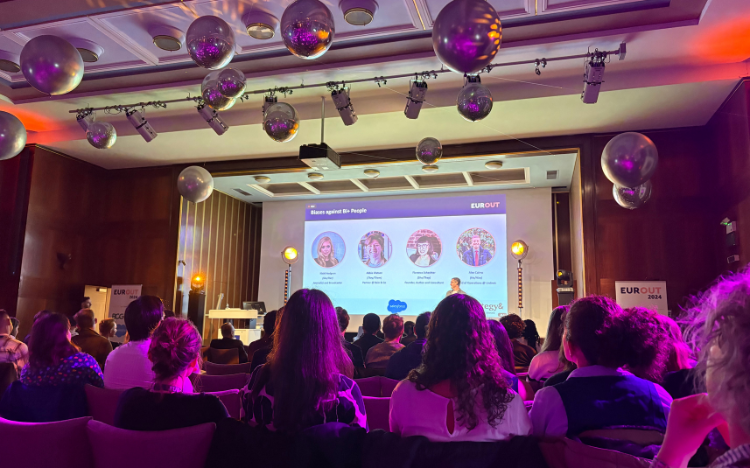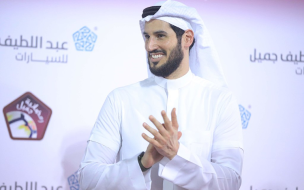Organized by the school’s Out in Business Club, the event brought together more than 500 representatives from 30 business schools and over 20 sponsoring companies, offering a platform to celebrate diversity and inclusion in the professional world.
This year’s theme, Learning from Legends, Leading with Pride, celebrated the contributions of LGBTQ+ professionals while encouraging attendees to reflect on inclusive leadership in their future careers.
Attendees participated in workshops and seminars such as Biases Against Bi+ People and Coming Out at Work, and heard from Dame Julia Hoggett, CEO of the London Stock Exchange.
The conference opened with remarks from London Business School Dean Sergei Guriev, who told attendees: “We want to educate but also inspire and change the way the world does business.”
He urged representatives to see the event as more than just a gathering, describing it as a “relentless pursuit of excellence” and a challenge to the status quo.

Inclusive leadership: Breaking barriers and shifting perspectives
A recurring message throughout EUROUT 2024 was the importance of challenging assumptions and dismantling biases that persist in the business world.
Speakers and panelists shared personal stories of navigating stereotypes and prejudices, shedding light on how workplace culture can either hinder or support LGBTQ+ professionals.
In one panel that discussed biases against bisexual people, panelists highlighted the unique challenges faced by bisexual individuals, such as bi-erasure.
Alex Cairns, head of operations at a global payment platform, pointed out how workplace norms, such as social events centered on drinking or sports, can inadvertently alienate individuals who may already feel out of place.
Abbie Watson, from the big three consulting firm, Bain & Company, highlighted lingering prejudices that often discourage individuals from being out at work. However, she noted that larger organizations can sometimes offer more opportunities for support.
Inclusive leadership, allyship, and intersectionality
Another key theme was the need for active leadership and allyship. CEO of Trans in the City, Bobbi Pickard, discussed how allyship requires deliberate effort, whether through mentoring, education, or creating safe spaces for underrepresented groups.
“We want all trans and non-binary people to hit all their goals so their career can flourish,” she said.
Intersectionality also emerged as a central topic, with panelists exploring how individuals’ multifaceted identities shape their workplace experiences. “You are the sum of many parts. As we say at Bain, 1+1=3,” said Ruth Zohrer, a partner at Bain & Company.

Inclusive leadership: Redefining workplace norms
EUROUT also served as a platform for discussing how businesses can redefine workplace norms to become more inclusive. Companies were encouraged to educate their employees on LGBTQ+ issues, from bi-erasure to inclusive language.
For instance, Lauriane Requena, a principal at a global investment firm, shared how the company issued guidelines during Pride Month to promote respectful behaviors, such as asking about “partners” instead of boyfriends or girlfriends.
In the keynote talk, Dame Julia Hoggett, CEO of the London Stock Exchange, asked attendees to rethink traditional approaches to leadership: “Leadership is not just filling your little box. It’s about ticking every box and dancing on the edge of your authority.”
For business school students, EUROUT underscores the growing importance of LGBTQ+ inclusion in shaping corporate cultures. While events such as this showcase the progress made toward representation, they also highlight the ongoing challenges faced by LGBTQ+ individuals in professional environments.
One Oxford Saïd MBA student, Jose Hong, a ROMBA fellowship recipient from Singapore, shares his perspective on the nuanced realities of LGBTQ+ leadership and why EUROUT was significant to him.
“LGBTQ empowerment and visibility is so important. I came here to learn how I can be a better leader, and how I can create a more supportive environment for my employees in the future,” he says.








